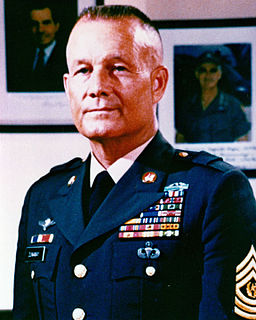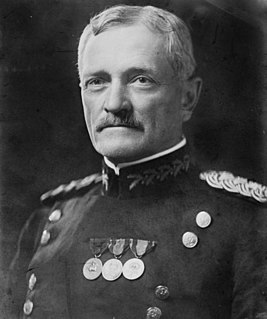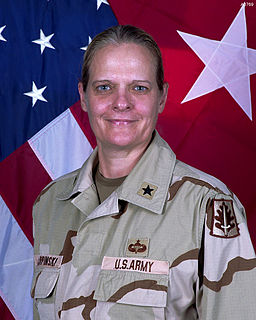A Quote by Walter Dean Myers
When we think of war, the tendency is to picture young soldiers only in their military roles. To a large extent this dehumanizes the soldiers and makes it easier for society to commit them to combat.
Related Quotes
Society can give its young men almost any job and they'll figure how to do it. They'll suffer for it and die for it and watch their friends die for it, but in the end, it will get done. That only means that society should be careful about what it asks for. ... Soldiers themselves are reluctant to evaluate the costs of war, but someone must. That evaluation, ongoing and unadulterated by politics, may be the one thing a country absolutely owes the soldiers who defend its borders.
The equipment and weaponry will continually change and improve, and the size of the military will expand as needed, decreasing during times of peace. But the unyielding will of the soldier and the dedication of professional military leaders will not change. Our soldiers can do a great deal more under pressure than people think. You'd have to see them perform in combat to believe it.
In each succeeding war there is a tendency to proclaim as something new the principles under which it is conducted. Not only those who have never studied or experienced the realities of war, but also professional soldiers frequently fall into the error. But the principles of warfare as I learned them at West Point remain unchanged.
There can be no doubt about this. It even held true for the soldiers involved in the Kosovo War. For the soldiers stayed mostly in their barracks! In this way, polar inertia has truly become a mass phenomenon. And not only for the TV audiences watching the war at home but also for the army that watches the battle from the barracks.
One of the lessons learned during the Vietnam War was that the depiction of wounded soldiers, of coffins stacked higher than their living guards, had a negative effect on the viewing public. The military in Iraq specifically banned the photographing of wounded soldiers and coffins, thus sanitizing this terrible and bloody conflict.





































